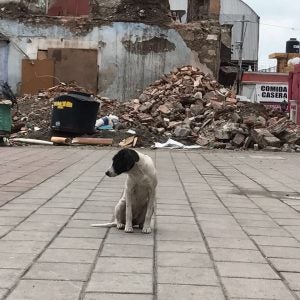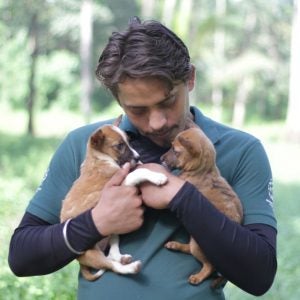
New pet shop rules setting standards for animal housing and care are now in place in India. If implemented appropriately, the rules could stem the cruel practices rampant in the pet shop industry. The Ministry of Environment, Forests and Climate Change notified the Prevention of Cruelty to Animals (Pet Shop) rules, 2018 in the wake of a series of representations made by Humane Society International/India and People for Animals, apprising the ministry of the cruelty found in the pet shop industry.
Animals transported and traded to meet the demand of the pet shop industry are kept in inhumane conditions. These animals are typically denied complete veterinary care; puppies are separated from their mothers soon after birth; birds, rats, mice, hamsters and guinea pigs are stuffed in small cages without access to adequate water or food. Other common harmful practices include mutilation in the form of de-beaking, tail-docking, feather plucking, nail clipping and de-clawing. An estimated 40 percent of animals die in captivity or during transportation. Pet shops often grossly violate the Wildlife Protection Act, 1972 by blatantly selling wild animals.
Gauri Maulekhi, trustee at PFA and government liaison officer for HSI/India, said, “Animals sold in pet shops are treated as commodities and the cruelty they are subjected to at the hands of pet shop owners is unthinkable. The situation in pet shops demanded a crying need of a regulation and we are pleased that the Government and the Ministry of Environment, Forest and Climate Change supported us in identifying the issue. The notification of these rules is half the battle won, and what we now await is a thorough implementation of these rules to ensure that no pet shop owner is allowed to thrive illegally.”
Some of the key features of these rules are:
- 1. No person can operate a pet shop or carry on the business of trade in pet animals without a certificate of registration from the concerned State Animal Welfare Board. Any person already operating pet shops may apply for registration within 60 days from the date of these rules.
- 2. Any pet shop without a valid certificate of registration, or the failure of the person to apply for the same within a specified time period, will result in the sealing of the pet shop. Animals confiscated from such shops shall be sent to an animal welfare organization recognized by the Board.
- 3. Application for registration to be made to the State Board with a non-refundable fee of 5,000 INR. A separate application shall be made for every pet shop or any premises being used for the pet trade. Such a certificate shall be valid for a period of five years, non-transferable, and shall be subject to an yearly review.
- 4. Pet shops registered by the Board shall be inspected by an authorized veterinarian upon receipt of the application. On being satisfied that the applicant and the establishment comply with requirements under these rules, the State Board shall continue the registration.
- 5. The rules provide standards for accommodation, infrastructure, housing, general care, veterinary care and other operational requirements. These include the elimination of wire mesh for the floors of the enclosures, a health certificate from a veterinary practitioner for every animal on sale, and a written exercise plan for any pup over 16 weeks of age.
- 6. Every pet shop owner shall maintain a record book with the particulars of breeders and suppliers of pet animals, trade transactions and their details. Records of the customers buying pet animals must also be kept. Additional records required to be kept are “mortality register” and “health register.”
- 7. On receipt of a complaint for noncompliance of these rules by pet shop owners, an inquiry will be conducted through the local authority or SPCA. Animals found to be ill-treated or sick shall be confiscated and sent to a recognized animal welfare organization for treatment. The pet shop owner shall be liable for any expenses incurred for the care and treatment of such animals.
- 8. If violations are discovered during the inspection, the State Board shall issue the owners a notice of show cause. The State Board may, if it is not satisfied with the response received, or if no response received from the owners, cancel the registration and communicate the reasons in writing. Subject to appeal, the pet shop may be sealed or registration reinstated as the case may be.
- 9. Every registered pet shop owner is required to submit an annual report to the State Board detailing the total number of animals traded, boarded or exhibited during the previous year.
HSI/India and PFA have played a key role in drafting the rules and approaching the judiciary seeking to issue the directions so the Government may notify these rules.
Media Contact: Alokparna Sengupta, asengupta@hsi.org, +919849094113







